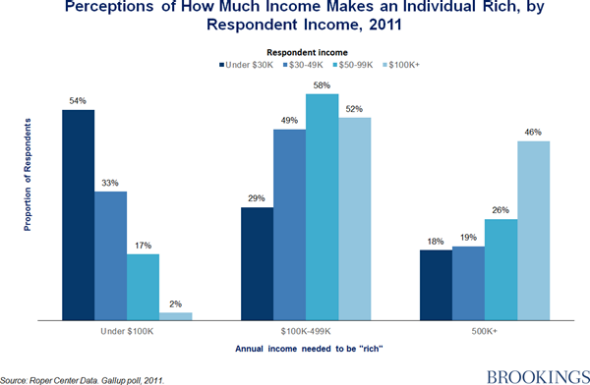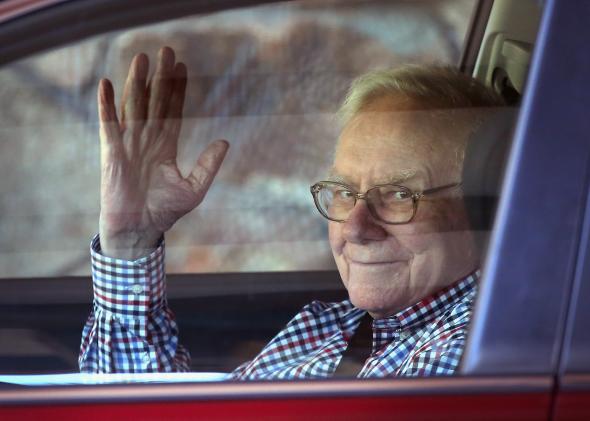Americans do not often admit to being rich. There are, of course, prominent exceptions. Warren Buffett will tell you he is in fact affluent. Kid Rock will too, and really exuberantly. Guys like Tom Perkins, the venture capitalist, will talk about how they’re tired of being envied for their money and make unfortunate Nazi Germany analogies in order to illustrate their persecution complexes. But as a rule, we don’t own up to our wealth. Just 1 percent of Americans say they are “upper class,” according to the Pew Research Center. Everyone else thinks those words describe somebody richer than they are.
Richard Reeves of the Brookings Institution, who has made this quirk of our class identities into a hobby horse of sorts, recently put together a nice illustration of what he calls our national, “Me? I’m not rich!” problem. In 2011, Gallup asked Americans how much income they needed to be “rich.” In general, they answered some amount that was higher than whatever they made. Most people who earned $30,000 a year or less thought you could be rich making under six figures. A majority of those who earned between $30,000 and $99,000 thought you needed to cross the $100,000 threshold. You get the idea.

None of this is especially surprising. People don’t generally think about living standards in absolute terms. They think about them relatively, and tend to compare themselves with their peer group. And because most of us know at least a few jerks with a bigger house, nicer car, and more interesting-looking vacation photos, it’s easy to conclude that, no, we ourselves are not truly rich. I’m making fun of Americans for it, but my guess is it’s near universal. It just happens to be a problem in the U.S. because, as Reeves writes, those of us who think we should be paying taxes at all tend to believe the rich should be the ones shelling out. That’s a political problem when there are apparently no rich people to be found.
Via Danielle Kurtzleben at Vox
